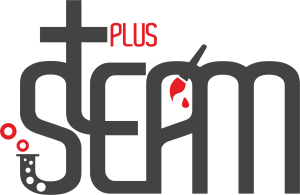About the Steam Plus Project
Adopting the principle of “leaving no one behind”, the STEAM PLUS project aims to contribute to sustainable development with a holistic approach. Skills possessed by adults must be adapted and developed to the needs of today’s world, which is constantly evolving and transforming. The main motivation of the project is to provide inclusive and quality education and to promote lifelong learning opportunities. Adaptation of adult individuals to technology and scientific facts in the digitalized world brings with it some problems in terms of time, cost or living conditions. Especially adults who have not received formal or non-formal technical education have difficulty in adapting to this process. The pandemic experienced on a global level has once again shown that these difficulties must be overcome and that humanity needs more creative thinking and behavior.
STEAM (Science -Technology -Engineering -Arts -Mathematics) applications, which provide the basic infrastructure that becomes inevitable in the personal and social development of adults, open a new way out within the framework of creative applications. Restructuring of STEAM applications, which are generally considered for children, for adults allows adults to adapt quite quickly to changing conditions. The multidisciplinary STEAM approach opens new doors for many adults with employability problems, from retirees to low-qualified individuals and disadvantaged groups. Creativity-based STEAM trainings provide adults with new perspectives in their social lives, professional lives and problem solving ability.
“Intergenerational Learning for Adult Learners through STEAM: From the point of Hofstede’s 6D Model (Steam Plus)” project is a project consisting of face-to-face and online training aimed at creating a STEAM curriculum for adult individuals, funded under the European Union Erasmus Plus Adult Education Partnerships for Creativity component.
Erzurum Technical University (Coordinator) – Türkiye
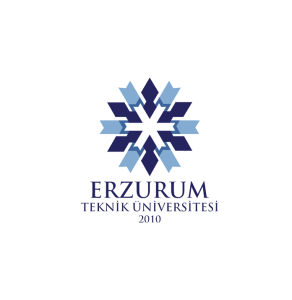
Erzurum Technical University is a higher education institution located in Erzurum/Türkiye. Erzurum Technical University was established on 21 July 2010 as the second state university of the city of Erzurum and the sixth technical university of Türkiye. Erzurum Technical University has a total of 4186 active students and approximately 450 academic and administrative staff within 6 faculties, 1 Higher School and 3 institutes. Erzurum Technical University’s vision is to become a world university. Erzurum Technical University aims to be in contact with the society, to produce scientific solutions to the problems of the people, and to spread knowledge and artistic productions to all levels of the society.
Experience Workshop – Finland
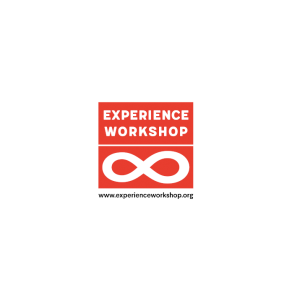
Experience Workshop (EW), operating in the field of STEAM training, is a creative company that develops educational projects to provide opportunities for students of all ages by applying a multidisciplinary learning approach. Its main areas of activity are: STEM and STEAM education, program development, STEM and STEAM education in real-world environmental problem solving, educational tool development, inquiry-based, collaborative, fun and experience-oriented mathematics education, problem solving in mathematics, science, art and design learning, linking applied activities and digital modeling in the learning process, phenomenon-based learning, collaborative problem solving, co-teaching, multidisciplinary learning, interdisciplinarity in education. Exhibiting a variety of math-arts-education events all over Europe, Asia and the Americas, EW organizes workshops, seminars and training. EW’s international network and community consists of hundreds of active members such as teachers, artists, academics, craftsmen and toy manufacturers based in different countries, primarily in Finland, Hungary. Since its establishment, more than 30,000 people have attended the events organized by EW and learned about STEAM training.
Universitat Linz – Austria
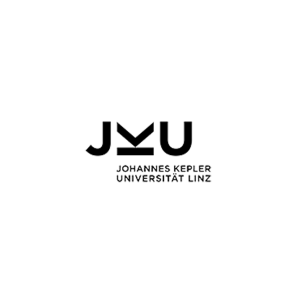
Johannes Kepler University, the largest university in the Upper Austria region, is located in Linz, Austria. Since its founding in 1966, JKU has become a successful and innovative center for science, academics and society. JKU has an international reputation not only for basic knowledge research but also for applied focused research. JKU has an international reputation not only in conducting basic knowledge research, but also in applied focused research. The university offers interdisciplinary and applied educational programs designed to meet the needs of today’s business and society. JKU Linz is among the best young universities in the world (under 50 years old).
Erzurum Maturation Institute – Turkiye
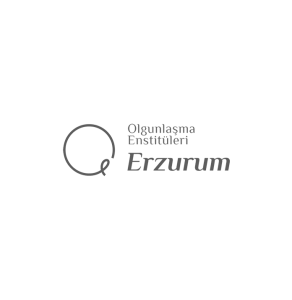
Erzurum Maturation Institute was established on January 4, 2019 as Turkey’s 23rd Maturation Institute. Due to its geographical and cultural proximity to Erzurum Maturation Institute, which will contribute to the promotion, economic and cultural life of Erzurum, it is planned to work in coordination with the provinces of Bayburt and Kars. The vision of the Institute is to hand down cultural values to future generations by keeping them alive, to establish contact between traditional and modern, and to promote the history and culture of the region on national and international platforms. The mission of the institute is to research the cultural values of the region, including the surrounding provinces, to hand down traditional values to the present and the future by designing them without destroying their originals, and to revive traditional arts.
Erzurum Science and Art Association – Türkiye
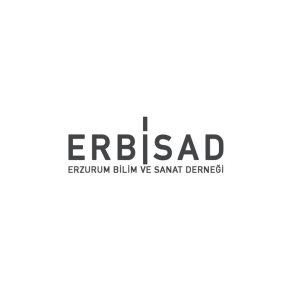
ERBISAD was established to organize cultural and artistic events for the association at home and abroad. These activities include scientific conferences, symposiums, panels, congresses, workshops, courses, seminars and workshops. The association aims to prepare and execute national and international projects in order to contribute to the national and international community. ERBISAD has participated as a partner in Erasmus+ projects, both of which are supported by the Turkish National Agency and carried out under the coordination of Erzurum Technical University. The first of these projects is the KA205 Invented Life (www.inventedlife.net) Project (completed successfully in December 2022) in the field of Partnerships for Vocational Education. ERBISAD has a highly competent staff with members from different professions.
e-code – Slovakia
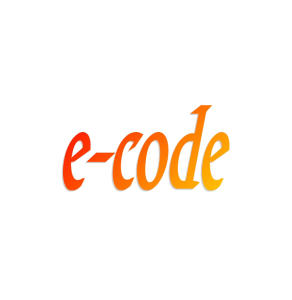
e-code is an independent adult-learning institution. The mission of the institution is to contribute to human development through the use and promotion of the most progressive teaching methodologies – whether these are being the ICT supported learning, distance learning or interactive forms of classical education. The main objectives of e-code can be defined as providing flexible forms of tailored education in areas with identified market needs and areas with low market attractiveness, combating the digital divide through education, protection of environment through educational activities. We work on international scope with minimum permanent staff and a number of associated external experts. e-code has been working in various projects since its very beginning of existence, i.e. since 2004.
AIMS
Given that knowledge is constantly changing, it’s critical for experts as well as ordinary citizens to update their understanding of STEAM. STEAM applications are a lifelong learning resource not only for children but also for adults of all levels. This project aims for adults to achieve the following general aims through STEAM applications.
Intellectual Outputs
IO1 – Culture vs Creativty; STEAM Literacy Questionnaire
Within the scope of this intellectual output, international literature on the successes and pitfalls of STEAM training will be compiled and a STEAM information package will be created. There is a mutual interaction between creativity and culture. In many theoretical studies, culture is seen as a catalyst for creativity. A cultural creativity portfolio prepared for STEAM-oriented and partner countries. The aim of this portfolio was to examine how culture shapes creativity. Individuals are categorized according to their age or type of activity. Considering that people participating in adult education might have different ages and education levels, it was thought that it would be more meaningful to make the classification according to the level of knowledge rather than age and professional experience. Thus, a multidimensional and multicultural STEAM literacy survey prepared and analyzed comparatively on the basis of partner countries.
IO2 – STEAM Module for Intergenerational Learning
Finding creative solutions to complex problems is seen as an important input for innovation, which is the main strength of European society. In addition, innovation is a human capacity that enriches personal life. STEAM penetrates and feeds into every aspect of today’s world, forms the basis of economic development that leads to the establishment of creative initiatives, rewarding and enrichment of careers. Transformations in the technological field have led to the emergence of intergenerational communication difficulties. In order to overcome these difficulties, an approach is needed where people of different age categories can interact and learn together. A STEAM module (activity set) that promotes intergenerational learning was prepared for adults. This module, was included in the “STEAM plus” portal, was instructive for adults. This modüle created based on the “Learning by Doing” approach, would allow adults to learn and experience new things without the support of outside experts.
IO3 -The Open STEAM Plus Portal
Within the scope of the project, an online and hybrid digital learning platform was developed that will transform crisis periods such as pandemics into opportunities. This portal was constructed in an integrated structure, has the potential to develop and multiply as a first in its field. The aim was to enable individuals living in different parts of the world to share their STEAM experiences with each other. It contains STEAM applications designed and ordered according to a systematic structure that all adult individuals can easily access. In this component, the modules produced within the scope of the second intellectual output of the project would be visualized. All kinds of content to be produced during and after the project takes place on the portal created within the scope of this component.
Pilot Study: A1 and A2 level STEAM training will be given to the people determined for the target audience. After the trainings are completed, the special interests of the participants in STEAM will be determined and B1 and B2 level trainings will be given to the participants according to these interests. After the B1 and B2 trainings, informative seminars on volunteering will be held. The selected group among the participants will complete the C1, C2 and D1, D2 trainings and become STEAM plus volunteers.
Event Report
Results
During the Project
In today’s world where technology is developing day by day, it is planned to re-systematize the existing practices for adults on the cultural axis in order to deliver STEAM training to all segments of the society.
With the help of Hofstede’s cultural dimensions, it will be analyzed comparatively whether there is a difference between countries in the integration of culture-creativity interaction into STEAM application areas.
A survey on STEAM literacy for adults will be developed and applied to target groups. The survey will be conducted in partner countries and the findings will be reported comparatively.
With the help of the survey, the interest and knowledge levels of adults in different categories and the points they focus on in STEAM training will be determined.
In addition to national and local factors in current STEAM applications, STEAM applications applied in different countries will be determined comparatively.
A common STEAM curriculum blended with cultural differences will be created to increase culturally indexed diversity in STEAM applications for adults.
In order to promote STEAM trainings for adults, the importance of cultural elements will be determined and a roadmap will be created on how to use these elements.
The theoretical and practical information obtained will be compiled into a book and an interactive platform to be created.
Trainings will be given to target groups determined within the framework of the curriculum created by expert trainers, and learning and teaching processes will be planned. Universal and local application materials developed during the trainings will be added to the interactive platform to be developed.
Post-Project
How cultural differences affect innovative processes will be determined at the scale of different countries.
Awareness of adult STEAM applications will be increased with the help of culturally focused promotional materials for the awareness of adult STEAM applications.
A systematic, multicultural and multidimensional adult STEM curriculum will be created and presented to large mass. The interaction of different generations will be ensured and the potential of the groups to use a common language will be increased.
With the volunteer network created, the cost of space and equipment required for STEAM trainings will be reduced and large masses will have access to these applications.
Environments will be created where individuals from different fields of work can demonstrate their creativity and hand it down to their peers or new generations.
Professional experiences of individuals will be blended with up-to-date knowledge and their productivity will be increased.
With the volunteer network, adults will gain the opportunity to be useful to the society and be a role model.
Individuals in target groups will be part of a sustainable system with the skills they have acquired.
The portal to be established will be a constantly evolving data source in terms of content, together with its volunteer network.
The structure to be established with the project will have the quality of a model and will become widespread in different geographies over time.
Target Group
Adults between the ages of 25-49 who are willing to participate in lifelong learning, have the potential to be employable, have strong human relations, are open to sharing their experiences and experiences with others, are prone to interdisciplinary studies, and have professionally developable qualifications.
Adults over 50 who do not have the skills to meet the needs of their age, are ready for intergenerational interaction, are open to developing and sharing their professional experiences, and need to be supported towards active citizenship behavior.
